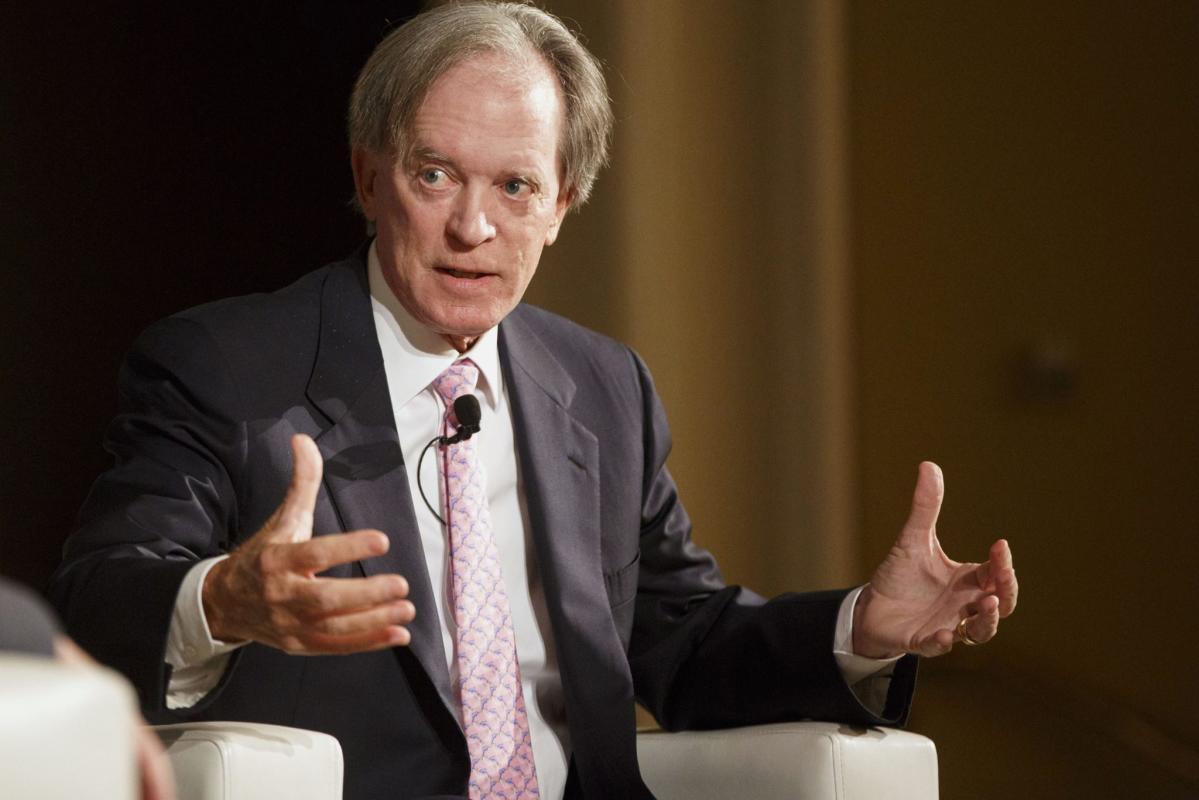
“Bond King” Bill Gross offered a bearish view of the stock market, just as the “Oracle of Omaha” Warren Buffett also signaled less optimism.
In a post on X early Friday, Gross said there are very few “bull stocks” and pointed to pipeline master limited partnerships, banks, and financials in general.
“Investors should stop talking about buying the dip and start asking about selling recoveries,” the cofounder of PIMCO added.
The tweet came before stocks sold off hard on weak payroll data Friday morning but after a steep dive on Thursday, when a surprisingly low reading of the Institute for Supply Management’s manufacturing index sparked a reversal in the market.
On Saturday, Berkshire Hathaway’s second-quarter earnings report revealed that Buffett’s conglomerate sold a net $75.5 billion worth of stock and nearly halved its stake in Apple.
The transactions took place before the recent stock selloff, when the S&P 500 was regularly setting fresh record highs.
“You could conclude this is another sell signal,” Jim Shanahan, an analyst at Edward Jones, told Bloomberg. “This was a far higher level of selling activity than we were expecting.”
Buffett’s stock dump was so aggressive that he didn’t rule out the sale of Berkshire’s remaining Apple stake, which he estimates is about 400 million shares. “I don’t think zero’s out of the question now.”
His stock selling spree has continued into the third quarter. Over the last few weeks, Berkshire has unloaded nearly $4 billion in Bank of America shares.
CFRA Research analyst Cathy Seifert told the Associated Press that Berkshire’s Apple stock sale looks more like responsible portfolio management, given that the iPhone maker had grown to such a large chunk of Buffett’s holdings.
It follows earlier moves to trim that part of the portfolio. In May, Berkshire disclosed the sale of 100 million Apple shares, amounting to 13% of its stake at the time.
Still, Seifert acknowledged that Buffett may be bracing for a downturn: “This is a company girding itself for a weaker economic climate.”
But others on Wall Street remain bullish. Jay Hatfield, CEO at Infrastructure Capital Advisors, said in a note Friday that the jobs reports confirms the economy is slowing but doesn’t signal the U.S. will enter a recession.
He reiterated a 6,000 price target on the S&P 500, indicating 12% upside from the last close, and predicted a rally toward the end of the year the election offers more clarity and the economy continues to show slow growth.
This story was originally featured on Fortune.com
